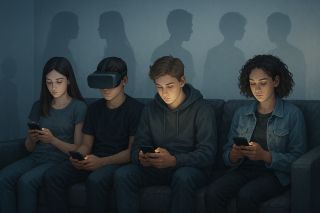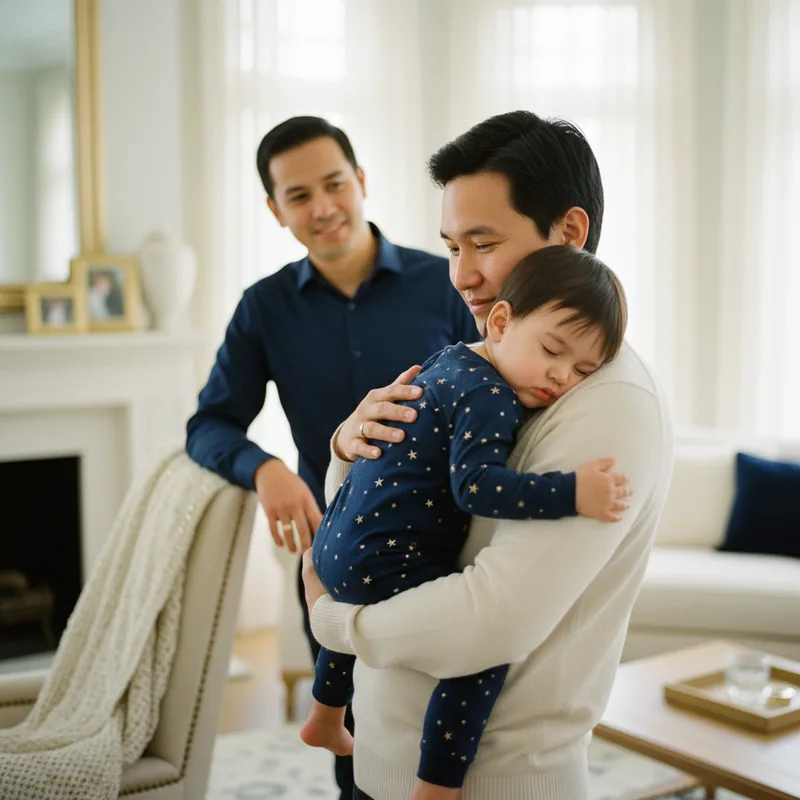In today's digital landscape, many young people are turning to AI companions because they genuinely feel safer than human relationships. This shift represents a fundamental change in how adolescents approach intimacy and connection, driven by increasing social anxiety, online risks, and the consistent reliability that artificial intelligence provides.
The Adolescent Crisis
Today's youth face unprecedented challenges that make human connection feel increasingly risky. Research from Stanford researchers reveals that 46% of young adults experience daily stress that impairs their functioning, while nearly a quarter avoid discussing mental health concerns with others. This emotional burden creates fertile ground for seeking alternative forms of companionship.
The digital environment compounds these issues. Short-form video consumption has been linked to cognitive decline and mental health struggles according to recent Harvard studies. Young people themselves describe this phenomenon as "brain rot," with self-reported cognitive disabilities doubling since 2013 among 18-39 year olds.
Why AI Feels Safer
Artificial companions provide emotional safety nets that human relationships often lack. These digital partners offer:
- Consistent availability - Always present when needed
- Non-judgmental responses - No criticism or shame
- Predictable interactions - Eliminates social anxiety
- Privacy assurance - No risk of betrayal or exposure
Recent data shows that 31% of teens find AI relationships equally or more satisfying than human connections. This preference for companions that feel safer stems from witnessing adult behavior online, where public shaming and dogpiling have become normalized.
The Human Connection Gap
The appeal of artificial intimacy isn't about technology superiority but about human relationship deficiencies. When classmates might screenshot private conversations or start rumors, the algorithm's consistency becomes more appealing. For youth navigating socially fragile environments, AI companions feel safer because they eliminate:
- Social rejection risks
- Public humiliation fears
- Emotional unpredictability
- Trust violation concerns
Stanford researchers note that this represents a defensive adaptation to challenging social conditions rather than mere technological fascination.
Building Trustworthy Relationships
To help young people prefer human connections over artificial ones, we must make interpersonal relationships feel genuinely safer. This requires:
- Modeling healthy conflict resolution - Demonstrate how disagreements can lead to growth
- Creating judgment-free zones - Establish spaces where vulnerability is welcomed
- Teaching digital citizenship - Help youth navigate online spaces responsibly
- Promoting emotional literacy - Develop skills for recognizing and expressing feelings
Harvard studies emphasize that early positive social experiences create templates for future relationships, making human connection feel more rewarding than algorithmic interactions.
Practical Solutions for Parents
Parents play a crucial role in helping children develop confidence in human relationships. Effective strategies include:
- Family connection rituals - Regular, device-free time for meaningful interaction
- Emotional coaching - Helping children name and navigate complex feelings
- Social skill building - Practicing conversation, empathy, and conflict resolution
- Digital mentorship - Guiding appropriate technology use rather than banning it
These approaches help children experience human relationships as sources of pleasure and safety, reducing their need to seek companions that feel safer in digital spaces.
Creating Safe Social Spaces
Educational and community institutions must actively combat the conditions driving youth toward artificial intimacy. This involves:
- Anti-bullying programs that address digital harassment
- Mental health resources readily available in schools
- Social-emotional learning integrated into curricula
- Peer support networks that foster genuine connection
When young people experience consistent kindness and acceptance in their real-world communities, the appeal of AI companions diminishes naturally.
Key Takeaways
The trend toward preferring companions that feel safer in digital form reflects broader societal issues rather than technological advancement. By creating environments where human relationships demonstrate consistent kindness, reliability, and emotional safety, we can ensure that AI remains a supplement rather than a replacement for genuine human connection.
The most powerful intervention is helping young people build positive, trusting relationships in their families, schools, and communities. When human connection feels safe and rewarding, artificial companions become optional tools rather than essential refuges.










